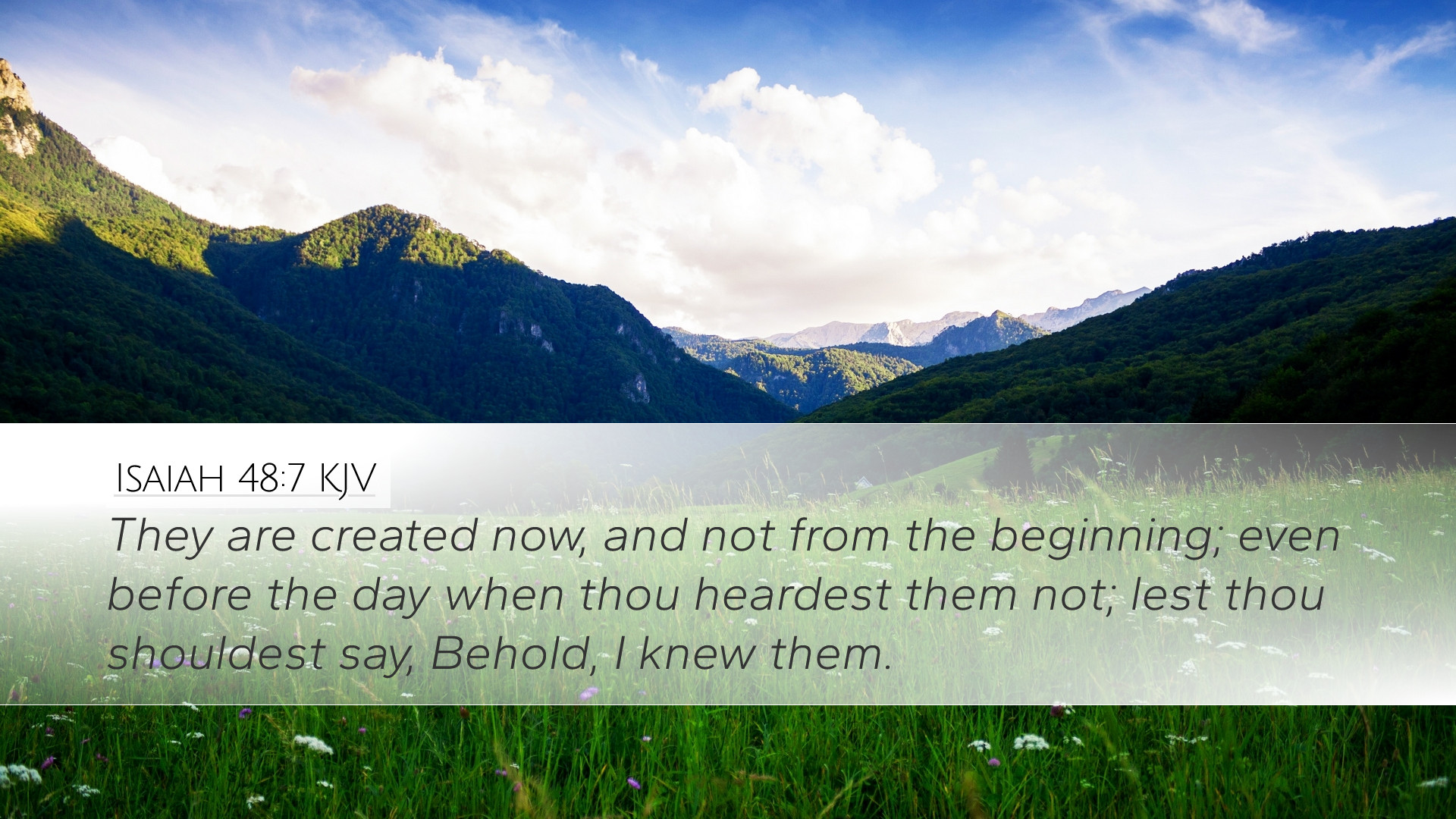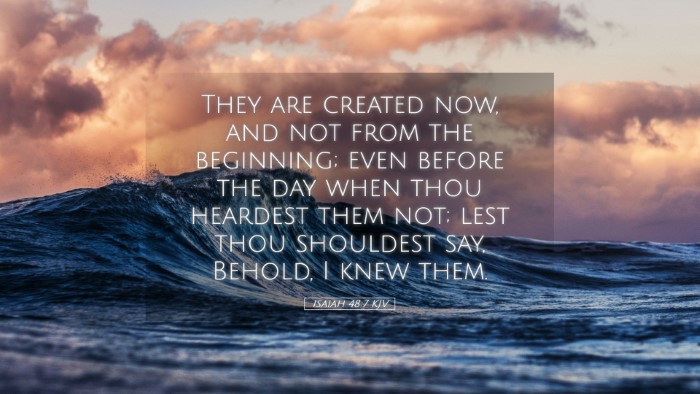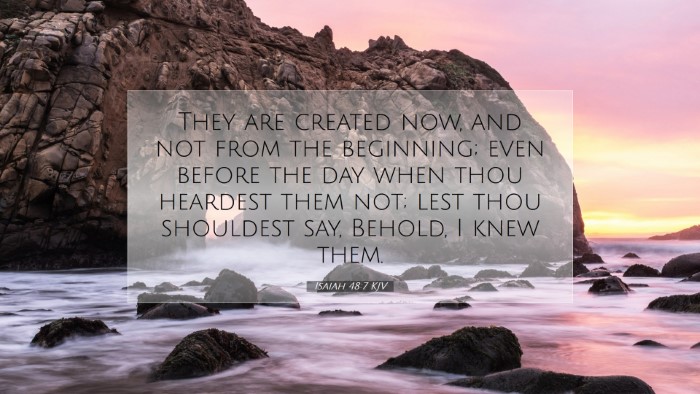Commentary on Isaiah 48:7
Verse: "They are created now, and not from the beginning; even before the day when you heard them not, they were created, lest you should say, 'Behold, I knew them.'" (Isaiah 48:7)
Contextual Overview
This verse situates itself within a significant section of Isaiah, where the prophet addresses the people of Israel regarding God's sovereignty and the uniqueness of His revelation. The context of this chapter is marked by God’s proclamation of His plan for Israel and their destiny amidst their disobedience and idolatry.
Insights from Matthew Henry
Matthew Henry expounds on the theme of divine sovereignty and human ignorance found in Isaiah 48:7. He emphasizes that God is working in history and that events do not occur by chance but through His will. Henry observes that God is revealing truths, particularly about His promise of deliverance, which have been 'created' in the divine plan before they manifest in time.
Henry highlights the importance of recognizing God's actions as not always immediately perceivable to humanity. He comments on the phrase "lest you should say," indicating that God desires to eliminate any grounds for pride or presumption on the part of Israel. The message is primarily focused on God’s proactive role in their redemption.
Albert Barnes' Perspective
Albert Barnes comments on the literal meaning of the text, noting that the words "created now" indicate an unfolding of God's redemptive plan that comes to fruition in time, even if the foundation was laid long before. He stresses that God's revelation is timely and targeted towards those who have previously rejected Him.
Barnes makes a critical observation about the phrase "even before the day when you heard them not," suggesting that the reality of God's work often precedes human acknowledgment. He underscores God's intention of ensuring that His people cannot claim foreknowledge of events that they have failed to perceive or understand. This is an assertion of divine authority and foreknowledge.
Adam Clarke's Interpretation
Adam Clarke provides a detailed exegetical insight into this verse, interpreting "created now" as a divine action that is new and fresh, not a mere repeat of the past. Clarke reflects on the concept of 'creation' in this context as the manifestation of God's will that leads to a significant historical event, particularly referring to Israel's restoration.
He reflects on the implications of being caught unawares by God’s actions. Clarke argues that it serves as a warning to Israel about their spiritual condition and their failure to recognize God's intervention in their lives. He emphasizes the relational aspect of knowing God—a theme prevalent throughout the prophetic literature.
Theological Implications
This verse not only reflects God’s sovereignty over history but also His desire for Israel (and humanity) to recognize and respond to His revelations. The phrase hints at the concept of foreknowledge and predestination, inviting deeper theological discourse on how God operates within time while being outside of it.
God’s revelation being "created now" invites a reflection on the nature of divine communication and human reception. There is recognition that God's messages are often prepared in advance but revealed at the appropriate time, which calls pastors and theologians to consider contemporary applications of this truth.
- Sovereignty and Divine Timing: A reminder of God's ultimate control over history.
- Human Responsibility: A call to be attentive to God's revelations.
- Grace and Redemption: An encouragement of hope for restoration.
Conclusion
Isaiah 48:7 provides profound insights into the relationship between God and His people, highlighting themes of creation, revelation, and responsibility. The combined commentary of Matthew Henry, Albert Barnes, and Adam Clarke enriches our understanding of this text and invites all who engage with it to reflect on their own readiness to receive and respond to God's unfolding plan.


